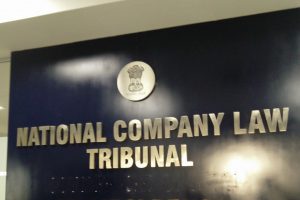National Company Law Tribunal, Mumbai: The Bench of Bhaskara Pantula Mohan, Member (Judicial) and V. Nallasenapathy, Member (Technical) allowed a petition filed by TJSB Sahakari Bank (“the Bank) for admission of an application under Section 7 of the Insolvency and Bankruptcy Code, 2016 read with Rule 4 of the Insolvency and Bankruptcy (Application to Adjudicating Authority) Rules, 2016.
The Bank was a member of the “SVC Bank Consortium” that sanctioned credit facilities to the Unimetal Castings Ltd. (“Corporate Debtor”) on 25-2-2013. The Bank sought initiation of Insolvency Resolution Process against the Corporate Debtor under Section 7 on the ground of default in repayment of the loan to the extent of more than Rs 6.38 crores.
Aditya Pimple, Advocate instructed by MAG Legal representing the Corporate Debtor raised various contentions to oppose the application of the Bank. One of the contentions related to applicability of Limitation Act, 1963 was that the claim of the Bank was barred under Article 137. For this, he relied on a recent judgment in B.K. Educational Services (P) Ltd. v. Parag Gupta and Associates, 2018 SCC OnLine SC 1921 wherein the Supreme Court clarified that the Limitation Act, 1963 is applicable to Insolvency and Bankruptcy Code, 2016. It was submitted that the date of alleged default was 30-06-2015 (the date on which Corporate Debtor’s account was declared a Non-Performing Asset). Furthermore, since the petition was filed on 23-8-2018, i.e., after more than 3 years of the date on which the cause of action arose (and also the right to apply accrued), therefore it was barred by limitation.
Per contra, Nausher Kohli, Advocate instructed by DSK Legal who appeared for the Bank, submitted that the Bank’s name and loan was shown in the balance sheet of the Corporate Debtor for the Financial Year ending 2017. This according to hi was an acknowledgement of liability. And therefore, it was contended that the debt was not barred by limitation even when the insolvency application was filed after 3 years from the date of default.
The tribunal noted that the Corporate Debtor did not dispute the fact the loan was shown as a liability in its balance sheet. It was observed, ” when the liability is shown in the balance sheet, that is a clear acknowledgement of debt by the Corporate debtor. There are umpteen numbers of judgments to say that the debt shown in the balance sheet is an acknowledgement of liability.” In such a view, the Tribunal held that the contention of the Corporate Debtor would not hold water. Having been satisfied that the Corporate debtor defaulted in making a payment towards its liability to the Bank, the Tribunal allowed the petition and admitted the bank’s application filed under Section 7 IBC. [TJSB Sahakari Bank Ltd. v. Unimetal Castings Ltd., CP (IB)-3622/I&BP/MB/2108 dated 25-01-2019]

